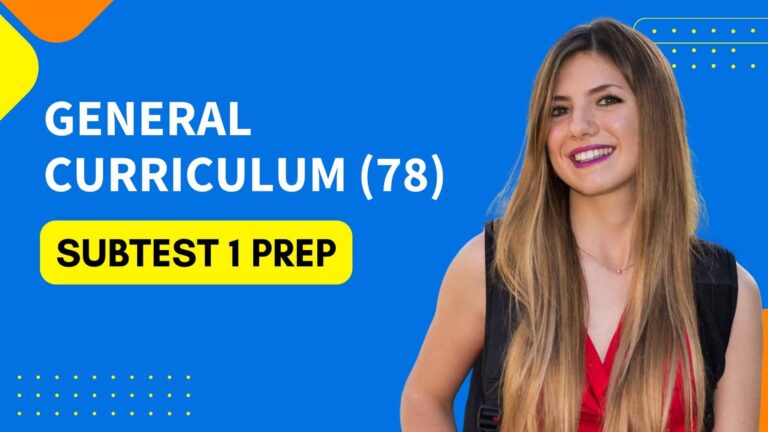
MTEL General Curriculum (78) Subtest 1 Exam Prep
The Massachusetts Tests for Educator Licensure (MTEL) General Curriculum (78) exam is designed to evaluate a candidate’s proficiency in subject matter knowledge as outlined in Massachusetts educator licensure regulations and curriculum frameworks. The exam consists of two subtests: Language Arts and History/Social Science (Subtest 1) and Mathematics and Science/Technology (Subtest 2). Each subtest assesses the depth of understanding required for teaching at the elementary level, typically for those nearing completion of or who have completed their undergraduate studies.
Overview
- Subtest 1: Language Arts and History/Social Science (178)
- Format: 60 multiple-choice questions, 1 open-response item
- Time: 4 hours for one or both subtests (excluding 15-minute CBT tutorial)
- Passing Score: 240 on each subtest
The following table details the structure and content areas of Subtest 1:
| Subareas | Range of Objectives | Approximate Test Weighting |
|---|---|---|
| Language Arts | 01–04 | 30% |
| History/Social Science | 05–09 | 60% |
| Open-Response | 10 | 10% |
Test Objectives Breakdown
Subarea I: Language Arts (30%)
- Genres and works of literature
- Informational texts
- Effective writing and research
- Speaking and listening techniques
Subarea II: History/Social Science (60%)
- Economics, geography, and culture
- World history to 1700 CE
- U.S. and Massachusetts history
- Government principles and structure
- Methods and practices in history and social science education
Subarea III: Integration of Knowledge and Understanding (10%)
- Comparison of primary and secondary sources
- Analysis of historical/social science topics
MTEL General Curriculum (78) Subtest 1 Study Guide
TeacherPreps study guide provides an overview of the topics and skills you need to master to pass Subtest 1: Language Arts and History/Social Science.
Subarea I: Language Arts
- Literature: Knowledge of genres, works, and their elements (e.g., plot, character, theme).
- Informational Texts: Understanding structures, features, and interpretation.
- Writing and Research: Techniques for composing various text types and conducting research.
- Speaking and Listening: Effective communication strategies in different contexts.
Subarea II: History/Social Science
- Economics and Geography: Basic concepts, resource use, and human interaction with the environment.
- World History: Major developments up to 1700 CE, including early civilizations and their interactions.
- U.S. History: Key events, figures, and movements shaping the nation, with a focus on Massachusetts.
- Government: Structure, functions, and principles of U.S. government at various levels.
- Historical Methods: Analyzing sources, interpreting data, and effective instructional practices.
Subarea III: Integration of Knowledge and Understanding
- Source Comparison: Evaluating and integrating information from multiple sources.
- Written Analysis: Developing well-organized, evidence-based written responses.
